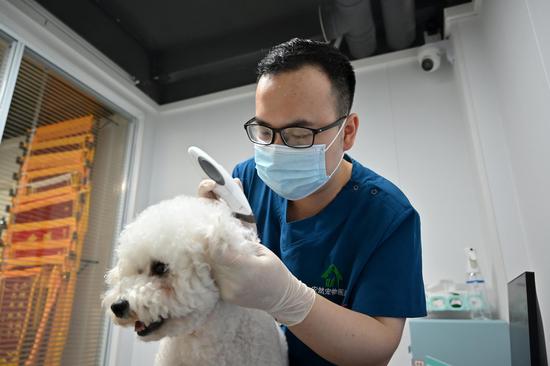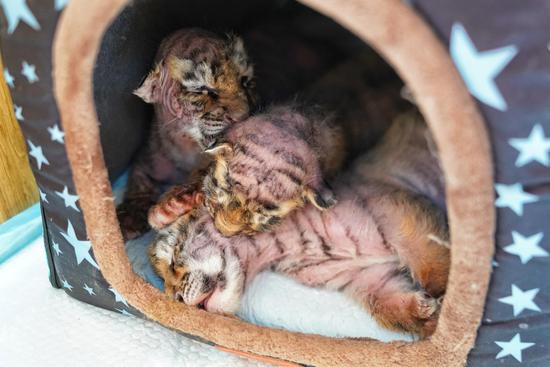(ECNS) -- Psittacosis cases have been reported in some cities of China, with patients suffering from days of fever and coughs.
Mr. Wuvisited the Beilun Branch of the First Affiliated Hospital of Zhejiang University School of Medicine for medical treatment. He had suffered recurring high fever and paroxysmal continuous cough, but conventional antipyretics and antibiotics didn't work. The chest CT scan showed he had inflammation in the lower lobe of his right lung. His wife also had similar symptoms. He was diagnosed with psittacosis.
Wang Zhongyuan, Wu’s doctor, said that the patient had probably contracted the disease while cleaning birdcages and bird droppings, or feeding and stroking birds.
Psittacosis is a zoonosis caused by chlamydia psittaci, which usually infects and spreads among birds and poultry like parrots, pigeons, chickens and ducks. Animals with the bacteria can infect people, Wang explained.
“Chills with fever are the most common symptoms and the human body can reach39 to 40 degrees Celsius. Most patients begin to cough on the third to sixth day, mainly dry coughs, and the incidence of pneumonia is as high as 85 percent to 90 percent,” said Wang.
Wang pointed out that chlamydia psittaci infection usually occurs from October to next February, and the incubation period generally lasts five to 21 days, varying from three to 45 days.
Some patients infected with psittacosis suffer severe headache and muscle pains all over the body, and severe patients almost can't stand. Other extrapulmonary manifestations include rhabdomyolysis, diarrhea, changes in myocardial enzymes and abnormal liver functions, said the doctor.
Wu was discharged from hospital after half a month of treatment.
Cases have been reported in Ningbo,Lishui, and Jinhua in Zhejiang Province, Shantou in Guangdong Proinvce, and other cities.
Although psittacosis can spread to people by animals, it is unlikely to spread from person to person. Doctors said psittacosis may lead to complications such as liver dysfunction, anemia and hepatosplenomegaly, and severe cases may die of organ failure.
“These confirmed cases had close contact with poultrysecretions, feces and more, then were infected with the disease,” said Yu Hanguang, deputy director of the Department of Respiratory and Critical Care Medicine, the School Affiliated Hospital of Shantou University Medical College.
Doctors remind the public that psittacosis may lead to severe pneumonia and damage to multiple organ functions so that people need to protect themselves well to prevent infection when watching and raising birds like parrots.


















































 京公网安备 11010202009201号
京公网安备 11010202009201号